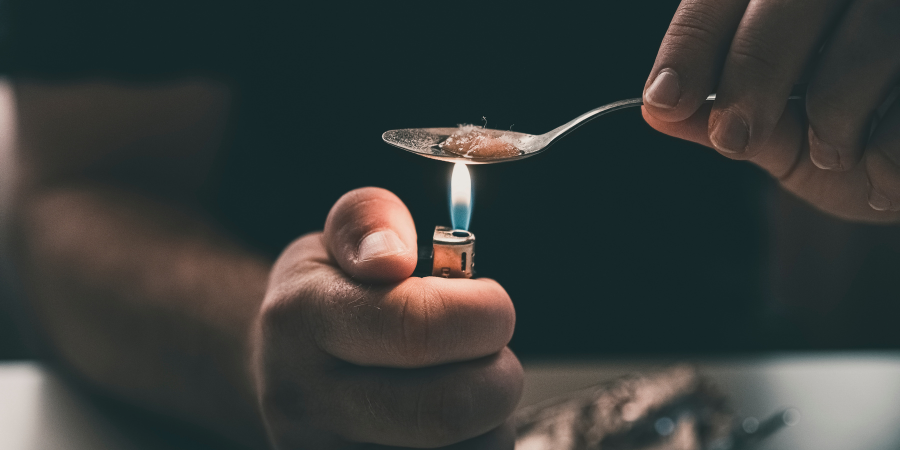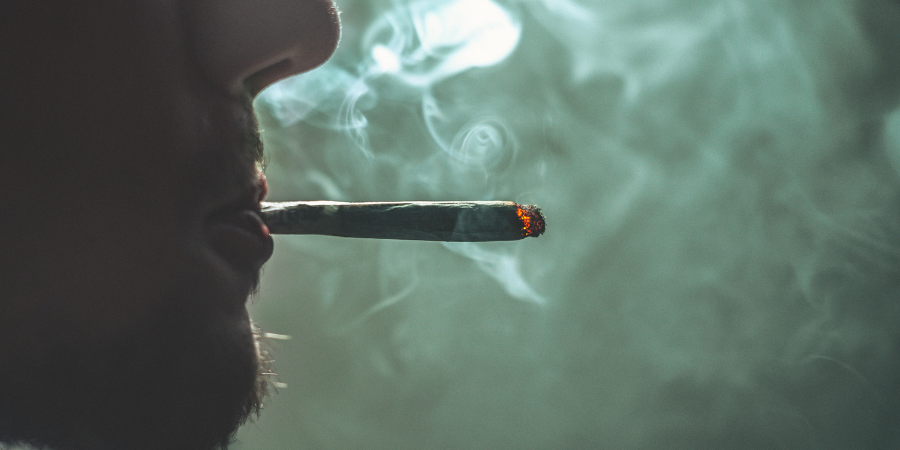
Written by:

Medically Reviewed by:
Last Updated:
March 5th, 2025
Crack Cocaine Addiction | Symptoms and Effects
Crack cocaine addiction is a very serious problem in the UK that causes enormous harm to individuals and their families and has blighted entire communities. It is one of the most addictive illicit drugs which can affect your health and relationships and put you in trouble with the law. Overcoming crack cocaine addiction can seem like an impossible mountain to climb, but Primrose Lodge has helped many people recover from their addiction and go on to lead fulfilling lives with decisions completely in their control.
On this page, we will discuss everything you need to know about crack addiction, from how it affects your life to the signs of addiction to look for in yourself and others. We will also explain where to get help and dispel some of the myths about crack cocaine.
What is crack cocaine?
Crack cocaine is a highly addictive illegal stimulant that is made, or “cooked”, from powdered cocaine. This is done by mixing cocaine with water and baking soda (sodium bicarbonate) and then heating it until it forms a hard, rock-like substance. The purpose of this is both to produce a stronger and more potent product and one which can be sold more cheaply than powder cocaine.
Crack cocaine is usually smoked through a glass pipe but can also be injected or snorted. The effects are felt almost immediately and include feelings of euphoria, increased alertness and talkativeness, as well as increased confidence and self-esteem. However, these effects are short-lived, usually subsiding after just five to ten minutes, and are followed by an intense crash which leaves the user feeling irritable, anxious and in need of another dose.
How does crack cocaine affect your brain?
Crack cocaine affects your brain by releasing large amounts of dopamine, a neurotransmitter associated with pleasure, into the area known as the nucleus accumbens. This gives you the feeling of a “rush” or “high”.
Dopamine is normally recycled back into neurons by a protein called dopamine transporter. However, crack cocaine prevents dopamine from being recycled, causing it to build up in the synapse (the gap between neurons). This results in increased neuronal activity and is what causes the pleasurable effects.
However, this increased activity also damages the neurons and, over time (with chronic use), can lead to changes in brain structure and function. These changes underlie many of the long-term effects of crack cocaine, which can include paranoia, anxiety, depression and psychosis.
How does crack cocaine addiction develop?
Crack addiction is a multi-faceted condition with each person having their own set of underlying causes. However, there are two main routes to crack cocaine addiction that we commonly see in clients at Primrose Lodge:
Social use
The first is what we call the “social user”. This is someone who starts taking crack cocaine recreationally, often at parties or clubs. This can be because they enjoy the pleasurable effects, they feel pressured by their peers or as a result of previously taking other “gateway” drugs before progressing to crack cocaine.
Coping mechanism
The second common route to crack cocaine addiction is often seen in people who are vulnerable or have pre-existing mental health conditions. This is because these people often self-medicate with crack cocaine to provide temporary relief from symptoms such as anxiety and depression. While this may be successful in the short-term, crack cocaine can actually make these symptoms worse and can even lead to new mental health conditions.
If you or someone you know is using crack cocaine recreationally or to self-medicate, it is vital to seek help as soon as possible. The earlier the issue is addressed, the better the chances of avoiding or overcoming addiction. Get in touch with us here for advice and more information.
Why is crack so addictive?
Whatever the initial reason you start using crack cocaine, a tolerance can soon develop. This means that you need to take more and more of the drug to get the same effects. You may also start using crack cocaine more frequently, even daily or multiple times a day. This can lead to dependence, where you feel like you need crack cocaine just to function normally.
Once you are dependent on crack cocaine, you will experience negative withdrawal symptoms if you try to stop using. This contributes to the development of a full-blown crack addiction when you continue to compulsively take the drug even though it is affecting you in a negative way.
Effects of crack addiction
Crack addiction and long-term abuse can lead to a number of physical and mental health problems. These include:
- Sudden death due to stroke or heart attack
- Sexual dysfunction and reproductive damage
- Mental health disorders
- Malnutrition
- Cardiovascular problems
- Damage to your heart, kidneys and liver
- Respiratory issues
- Seizures
- Sleep deprivation
- Damage to your teeth, lips and gums
- Psychotic symptoms such as paranoid delusions and tactile/auditory hallucinations
In addition to the adverse effects on health, crack addiction can also lead to problems in all areas of your life. As you become more and more dependent on crack cocaine, you will find yourself committing increasing amounts of time, energy and money to obtain and use the drug. This can lead to relationship problems, financial difficulties, job loss and homelessness. It can also put you in trouble with the law and there are many people in prison in the UK with offences related to crack cocaine.
How do I know if I am addicted to crack?
The first step to overcoming a crack cocaine addiction is to admit you need help. This is often easier said than done because drug addiction is a master at deceiving people into lying to themselves and others.
If you are concerned that you may be addicted to crack, here are some questions to ask yourself:
- Do you use crack cocaine regularly, even daily?
- Do you spend a lot of time thinking about using crack cocaine or obtaining it?
- Have you committed crimes to fund your crack cocaine use?
- Do you continue to use crack cocaine even though it is causing problems in your life?
- Have you tried to stop using crack cocaine but been unsuccessful?
If you answered yes to these questions then you should seek help straight away. At Primrose Lodge, we have helped many people overcome addiction and we can help you too.
Signs of crack addiction to look for in a loved one
If you are concerned that a friend or family member may be addicted to crack cocaine, here are some of the common signs to look for:
- Drug paraphernalia in their room or clothing
- Scratching due to ‘crack bugs’
- Burns or blisters on their lips or fingers
- Mood swings
- Hallucinations or psychotic episodes
- Amplified aggression
- Sudden weight loss
- Changes in eating and sleeping patterns
- Loss of interest in hobbies, school or work
- Social isolation
- Deterioration in personal hygiene
- Financial difficulties
It is crucial that you approach your loved one with care and concern. They may be in denial about their addiction and be unwilling to admit they have a problem. It is important to express your concerns in a non-judgmental way and offer your support.
It is also very important that you don’t enable their crack addiction. This means not giving them money or shelter if they are using crack cocaine. Enabling an addict will only make their addiction worse and make it harder for them to get help.
If you are worried about a loved one, the best thing to do is talk to someone who can give you professional advice. At Primrose Lodge, we have a team of expert addiction counsellors who can help you.
Overcoming crack cocaine addiction
Crack addiction is a complex condition that requires a comprehensive treatment programme. This usually comes in three stages: detox, rehabilitation and aftercare.
Primrose Lodge provides the highest standards of care in comfortable settings. We have treated hundreds of clients for crack cocaine addiction and have helped many people attain long-term recovery.
To find out more about how we can help with crack cocaine addiction treatment, get in touch with us today and we will be happy to answer all your questions.
Common myths about crack cocaine
Crack is less addictive than cocaine because it is mixed with other substances
False! Crack is an incredibly addictive drug. The main difference between the two drugs is that crack is smoked, which means it enters the bloodstream and reaches the brain faster. This actually makes it more potent and more likely to lead to addiction.
You can’t get addicted to crack the first time you try it
False! It is possible to get addicted to crack the first time you try it. This is because crack is so potent and its effects are felt very quickly. The high from crack only lasts for a few minutes, which can lead to people increasing their dosage to chase that initial high.
It is easy to spot a person with a crack addiction
False! Many people who are addicted to crack lead normal lives and hold down jobs. It can be very difficult to spot an addict, which is why it is so important to be aware of the signs and symptoms of addiction.







